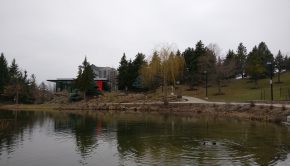Online ride matching: hook up and take cars off the roads
Reducing greenhouse gases and getting to school on time may have just gotten easier with the Metrolinx Smart Commute carpooling program offered to all Humber students.
Krista Eichenbaum, program coordinator for the Smart Commute services, said Metrolinx’s Smart Commute Carpool Zone program is a free online ride matching service that creates matches between students that travel to the Humber north campus with similar routes and schedules.
“Once their trip details have been entered, the system will automatically facilitate a list of matches for those students to invite to carpool,” said Eichenbaum. “This allows students to save time because with two or more people in the car you can use high occupancy lanes.”
Ultimately, individual users will see matches but make their own choices for potential travel partners.
Dana Bellamy is a fourth year student at the University of Guelph-Humber who just learned of the service.
“That general place where they can go and get that kind of information and get connected with people is a great idea,” said Bellamy, “I think it would be a great way for students to be able to get to school a lot easier than having to take the bus or having to get access to a car.”
Eichenbaum said Metrolinx is committed to promoting and supporting sustainable commuting options for post-secondary institutions.
“Every carpool has the potential to take a vehicle off the road, reducing congestion and the related air quality emissions and greenhouse gases,” said Eichenbaum.
Shea La’femme is a third year student at the University of Guelph-Humber who drives to school. She said the program could be beneficial.
“People can save money and gas by using one car instead of each person getting the their own SUV, van and car,” said La’femme.
Since the launch of the online Carpool Zone program in 2005, Eichenbaum said it has contributed to reducing the carbon footprint and the amount of money being spent on gas.
Eichenbaum estimated that the 1,500 registrants across the greater Toronto and Halmilton area helped reduce monthly car travel by 615,000 kilometers, and saved participants $398,900 in travel expenses last year.





